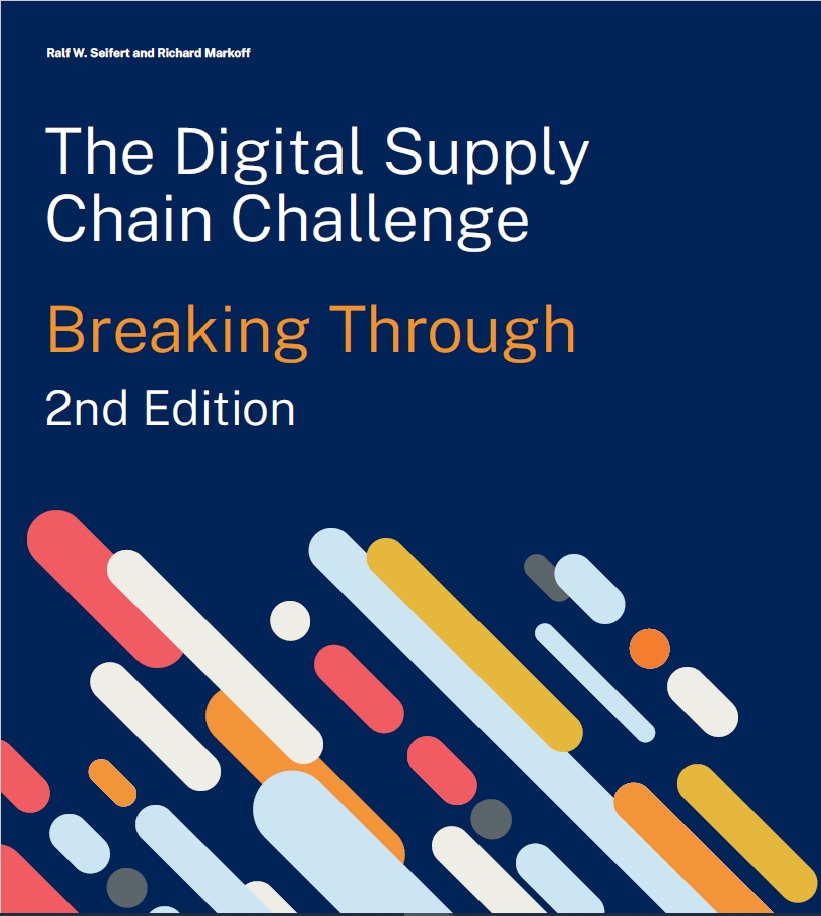The Digital Supply Chain Challenge 2nd Edition
The challenges facing supply chain professionals are changing rapidly. Today, far from focusing on capital expenditures and logistics such as warehousing and distribution, supply chain executives are expected to understand all aspects of the business, appreciate the constraints and expectations of upstream and downstream partners, and possess sufficient technological savvy to navigate the bewildering array of options presented by Industry 4.0 and supply chain digitalization (SCD). This book is for them.
The Digital Supply Chain Challenge: Breaking Through 2nd Edition is a distillation of the authors’ 50+ years of combined supply chain experience, both at the coal face and in the classroom. Their insights and observations – captured in short articles and best-practice case studies – are brought together in one place for supply chain executives to consult at different times during their SCD voyage, to find benchmarks, relevant insights or even just to help formulate the right questions along the way. It is a sort of handbook to the essentials of digital supply chain transformation.
This new edition contains additional chapters on AI, an evaluation of Industry 4.0, why the promised fourth industrial revolution hasn’t happened yet and new cases studies on Henkel, HEINEKEN, L’Oreal and Zalando.
Research Information & Knowledge Hub for additional information on IMD publications

has an extensive and varied supply chain background. His career includes 22 years with L’Oréal, starting in Canada in manufacturing before stints in Paris and New York, with ever-increasing supply chain responsibilities and scope.
He completed his adventure at L’Oréal as the company’s first global supply chain standards director, defining and promoting best practices in customer collaboration, distribution, demand planning and production planning.
Throughout his career, Richard has been a constant agent of change and innovation in supply chain. He has been a pioneer of supply chain digitalization, for which he was cited in the Wall Street Journal, among other publications.
He continues this spirit of innovation today as a supply chain strategy advisor, professor, author and board member based in Geneva, Switzerland. Richard is also a co-founder and partner of the venture capital firm Innovobot, where he advises startups on their road to success.
Richard holds a PhD in supply chain management from ESCP-La Sorbonne (France), where his research shed light on supply chain governance and its articulation with finance; an MBA specialized in supply chain from Northeastern University (US); and a bachelor’s degree in chemical engineering from McGill University (Canada).

Surviving Global Tariffs means Medtech and Luxury brands must revisit 1990s strategies to adapt to the US’s steepest trade barriers in decades.

10 years of exclusive surveys reveal top supply chain strategy challenges—and how tools like AI, ML, and digital twins are reshaping the path forward.

Stay ahead in a shifting global economy. Learn how to build resilient supply chains, manage currency risks, and adapt strategies for long-term business success.

Resilience and efficiency of supply chains should no longer be viewed as competing goals but rather as complementary aspects of a well-calibrated supply chain management strategy.

Bruce Grossman shares his family’s journey from mining to building Arca Continental, Latin America's second-largest Coca-Cola bottler, and their commitment to legacy and impact.

GenAI is becoming a more common feature of the supply chain function, but significant areas of opportunity remain, suggests IMD’s Carlos Cordon

Manufacturers must adopt a unified strategy across different divisions if they are to extract the full value of Industry 4.0.
The supply chain risk management literature differentiates between disruption risk that arises from supply disruptions to normal activities and recurrent risk that arises from problems in coordinating supply and demand in the absence of disruption...
Supply chain management experts Ralf Seifert and Richard Markoff pose the question: is fulfilment still an FMCG core competency?

Key minds behind the Hinrich-IMD Sustainable Trade Index – Deborah Elms, Chuin Wei Yap, Christos Cabolis, and Simon Evenett – explain how decision-makers can benefit from looking at industrial policy in granular detail, given its resurgence and th...
Research Information & Knowledge Hub for additional information on IMD publications
Research Information & Knowledge Hub for additional information on IMD publications
Research Information & Knowledge Hub for additional information on IMD publications
Research Information & Knowledge Hub for additional information on IMD publications
Research Information & Knowledge Hub for additional information on IMD publications
Research Information & Knowledge Hub for additional information on IMD publications
Research Information & Knowledge Hub for additional information on IMD publications
in Production and Operations Management 16 November 2024, ePub before print, https://doi.org/10.1177/10591478241302735
Research Information & Knowledge Hub for additional information on IMD publications
Research Information & Knowledge Hub for additional information on IMD publications
Research Information & Knowledge Hub for additional information on IMD publications


